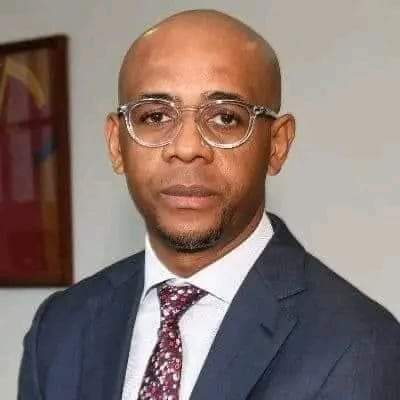International
JUST IN: Equatorial Guinea restricts WhatsApp amid high-profile sex scandal

In a new move aimed at curbing the spread of explicit content, the Government of Equatorial Guinea has restricted its citizens from downloading and sharing multimedia files on WhatsApp using mobile data.
This restriction, implemented through the country’s telecommunications operators, is part of broader guidelines to limit access to what authorities consider “inappropriate content.”
The crackdown follows a high-profile scandal involving Baltasar Engonga, Director General of the National Financial Investigation Agency, who is under investigation for fraud and alleged misconduct.
Engonga, 54, was reportedly found with over 400 explicit videos featuring encounters with influential figures, including high-profile relatives and the wives of prominent officials in Equatorial Guinea.
The videos surfaced during a search of Engonga’s office, revealing recordings with his brother’s wife, a cousin, the President’s sister, the wife of the Director General of Police, and wives of about 20 government ministers.
READ ALSO: Equatorial Guinea scandal: Woman allegedly takes her own life after sex tape appears online
Despite Engonga’s claim that the recordings were made with consent, the leaked content has caused a significant public outcry, with the scandal now dominating local media.
In response, the government imposed restrictions on WhatsApp multimedia sharing, making it impossible for users to download or share photos, videos, and audio files on mobile data.
As a result, many citizens have turned to WiFi networks to bypass these limitations.
Speaking with a source, the platform quoted a source as saying, “Should an entire country pay for the actions of a few? The likely decision to restrict access to essential communication functions seems disproportionate and punitive, affecting thousands of users of these platforms who, in addition to serving them for entertainment, also use them for their work and/or educational activities.
“In a world where digitalisation is becoming more and more important, should we shut down our platforms and paralyse our activities due to the actions of a few? Currently, users are forced to rely exclusively on WiFi connections, which not only limits their ability to communicate but also interferes with their daily activities.
“This situation has generated a heated debate among the population, where many believe that the measure seems to be more focused on controlling than facilitating communication,” the report added.
Ahora EG also quoted another querying, “Is it really fair that everyone should suffer the consequences of the actions of a few? The authorities have not yet provided any explanation for the reasons behind this restriction, as well as the duration of the same. At a time when information and communication are more vital than ever, the lack of transparency only aggravates citizens’ concerns.”
Earlier, the Vice President of Equatorial Guinea, Teddy Nguema, announced plans to install surveillance cameras in all state body offices.
This sweeping measure is part of an ongoing effort to ensure strict adherence to public service laws and combat misconduct among officials.


























